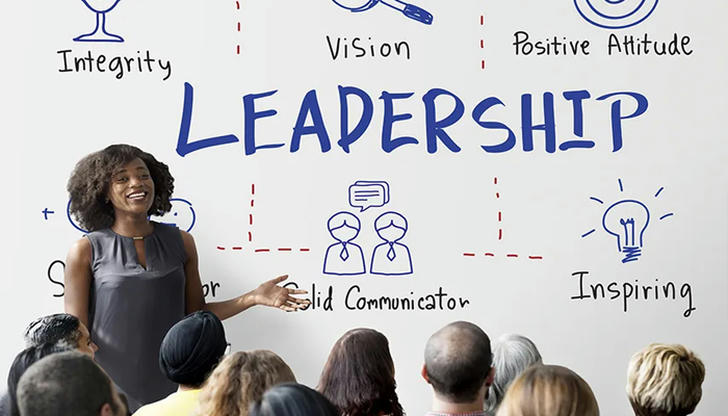Developing Leadership Skills: Essential Qualities for Career Growth

Effective leadership is a skill that can be developed over time with the right mindset, strategies, and dedication. Whether you're leading a small team or a large organization, mastering leadership qualities will significantly enhance your ability to guide, inspire, and drive success. This article outlines essential leadership skills and practical tips for improving these qualities in real-life situations.
1. Key Leadership Qualities to Develop
a. Communication
Communication is the backbone of effective leadership. It’s not just about speaking clearly; it’s about ensuring your message is understood and that you understand others. Good leaders are not only articulate but also excellent listeners.
Verbal Communication: When speaking to a team, make sure your message is concise and impactful. For example, during a team meeting, instead of rambling, focus on key points with clarity. This ensures your message resonates and reduces confusion.
Non-verbal Communication: Your body language conveys as much as your words. Maintaining eye contact, having an open posture, and nodding while listening can build trust with your team. A strong example would be when you’re addressing a challenging issue with your team and maintain calm eye contact to show confidence and openness.
Active Listening: Acknowledge team members' inputs and concerns, and respond with feedback that shows you truly understand. Practicing active listening is critical—when your team sees you’re genuinely interested, they’ll be more engaged and communicative.
b. Emotional Intelligence (EQ)
A high emotional intelligence helps you navigate workplace dynamics and improve team morale. It’s about understanding your own emotions and recognizing how others are feeling.
Self-awareness: Regularly reflect on your emotional responses in various situations. For instance, if you’re feeling frustrated after a difficult meeting, take a few moments to identify why, and how you can improve your reaction next time.
Empathy: When your team is facing difficulties, showing empathy—such as acknowledging their struggles and offering support—can improve morale and loyalty.
Emotional Regulation: Leaders often face stress, but controlling emotions is vital to maintain composure. Practice techniques such as deep breathing or taking short breaks when stress rises.
c. Decision-Making
A leader’s decisions affect the entire team. Making well-informed decisions quickly is critical, especially when under pressure. Strong decision-making requires both data and intuition.
Data-Driven Choices: Always gather relevant data before making a decision. For example, before launching a new marketing campaign, review past performance metrics and research to ensure you're making an informed choice.
Trust Your Gut: While data is essential, leaders also need to trust their instincts. If you feel confident about a decision based on past experience, don’t hesitate to act decisively.
Empower Others: Great leaders know when to delegate decision-making. Trusting your team to make decisions fosters a sense of ownership and empowerment.
d. Problem-Solving
Problem-solving is a core skill for leaders. Whether it's resolving conflicts within the team or overcoming operational challenges, the ability to analyze situations and come up with solutions is crucial.
Breakdown Complex Problems: When faced with a major issue, break it down into manageable parts. For example, if a project is behind schedule, first analyze why it’s delayed (resources, communication, etc.) before deciding on a corrective action plan.
Encourage Creativity: Foster a problem-solving environment by encouraging brainstorming sessions where your team feels comfortable presenting new, creative solutions.
e. Delegation
Delegation is essential for effective leadership. A leader cannot do everything on their own, and delegating the right tasks to the right people maximizes efficiency.
Assign Tasks Based on Strengths: Understand the strengths and weaknesses of your team members. For example, if you have a team member who excels in data analysis, delegate the responsibility of analyzing customer feedback to them instead of doing it yourself.
Clear Expectations: Provide clear instructions and expectations. Set up regular check-ins to monitor progress and offer guidance if necessary.
f. Adaptability
In today’s fast-paced work environment, leaders must be adaptable. Change is constant, and a leader's ability to adjust and pivot is critical to the long-term success of the team and organization.
Embrace Change: When your company introduces a new software tool, rather than resisting the change, embrace it by learning the tool and guiding your team to use it effectively.
Encourage Flexibility: Set the tone for adaptability by remaining open to new ideas and solutions. Show your team that changes can be opportunities for growth.
g. Integrity and Accountability
Integrity builds trust, and accountability is crucial in maintaining that trust. Being an honest leader who takes responsibility for their actions sets the standard for the entire team.
Be Transparent: If a project goes wrong, admit where things went wrong instead of shifting blame. For instance, if a deadline was missed because you miscommunicated, take responsibility and work to improve processes going forward.
Hold Others Accountable: It’s equally important to hold your team members accountable for their responsibilities. Lead by example and ensure that everyone is clear on their duties.
2. Strategies for Developing Leadership Skills

a. Seek Feedback and Self-Reflection
Regular feedback from your team and mentors helps identify areas for growth. This feedback allows you to continuously improve as a leader.
Ask for Constructive Feedback: After a meeting or presentation, ask specific questions such as, “How did I communicate the vision?” or “What could I have done differently?”
Self-Reflection: Set aside time each week to reflect on your leadership actions. What worked well? What could you improve? This habit fosters continual growth.
b. Find a Mentor or Coach
A mentor or coach can offer valuable insights into leadership and career development. They help guide you through challenges and provide perspective based on their experience.
- Choose the Right Mentor: Look for a mentor who shares your values and has relevant experience. They should be someone you can trust and who will give you honest feedback.
c. Take on Leadership Opportunities
Taking the initiative and seeking out leadership opportunities will provide you with practical experience and opportunities to hone your skills.
Volunteer for Projects: Volunteer to lead a project or organize team activities. It’s a great way to practice decision-making, problem-solving, and team management.
Mentor Others: Sharing your knowledge and mentoring a junior team member is an excellent way to improve your leadership skills while helping others grow.
d. Invest in Continuous Learning
Leadership is a lifelong learning journey. Stay committed to improving your leadership skills by reading, attending workshops, and taking courses.
Attend Leadership Development Programs: Many organizations offer leadership courses and workshops. Sign up for one that focuses on areas where you feel you need improvement, like conflict management or emotional intelligence.
Read Leadership Books: Some must-read books include Leaders Eat Last by Simon Sinek and The 5 Levels of Leadership by John Maxwell. These provide valuable insights on leadership and personal development.
3. Overcoming Leadership Challenges

a. Dealing with Imposter Syndrome
Many leaders experience imposter syndrome. It’s important to recognize that everyone, even seasoned leaders, faces self-doubt. The key is to acknowledge the feeling but not let it dictate your actions.
- Celebrate Achievements: Keep track of your successes and revisit them when self-doubt creeps in.
b. Managing Conflict and Criticism
Handling conflict and criticism effectively will reinforce your credibility as a leader.
Address Issues Early: If there’s a problem, address it directly and constructively. Avoid letting it fester, as it can damage team morale.
Accept Feedback Gracefully: When receiving criticism, listen to it with an open mind. Treat it as a learning opportunity, not a personal attack.
c. Time Management and Work-Life Balance
Being an effective leader doesn’t mean sacrificing personal time. Learn to balance work and life by managing time effectively.
Prioritize Tasks: Use tools like task lists or project management apps to stay organized and ensure that your time is spent on the most important activities.
Set Boundaries: Make sure to set boundaries between work and personal time. Leaders need time to recharge and avoid burnout.
4. Conclusion
Developing leadership skills is an ongoing process that requires effort, reflection, and adaptability. By focusing on key qualities such as communication, emotional intelligence, decision-making, and adaptability, you can improve your leadership effectiveness. Apply the strategies outlined here—seeking feedback, embracing challenges, and investing in continuous learning—and you will build a foundation for long-term success in leadership. The more you practice these skills, the more confident and capable you’ll become in leading teams and organizations to achieve their goals.
